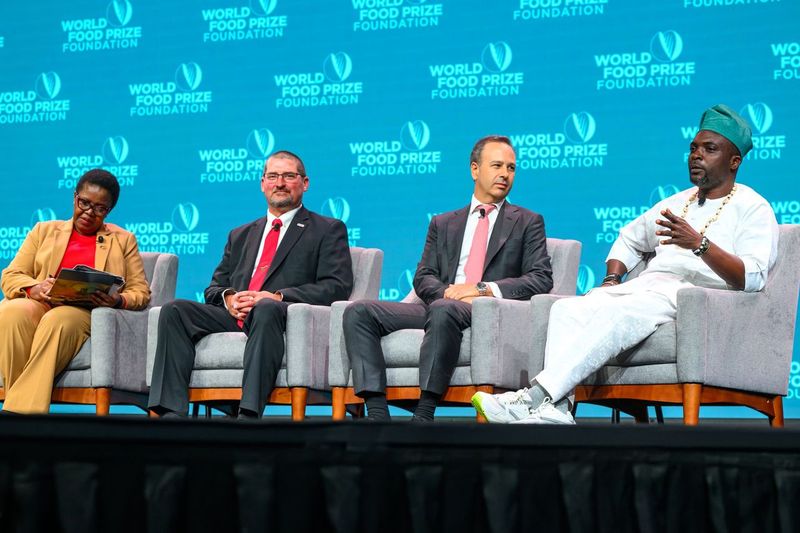
Sejiro Oke-Tojinu Michael remembers his college graduation speaker’s message to an audience of young people who were concerned about their future employment opportunities. The speaker challenged the grads with, “Why not create a job?”
Now nearly 18 years later, Sej has never written a job application. Instead, Sejfarms Consults Ltd. demonstrates how he and classmate/business partner/bride Mosunmola Oke-Tojinu are creating jobs and better nutrition for Nigeria as well as investing in the next generation of aquaculturists. They call themselves fishpreneurs.
“Aquaculture in Nigeria is still scratching the surface,” says this winner of the 2020 Best Fish Farmer in Lagos State. “There is so much latent potential!”
ASA/WISHH is proud to partner with Sejfarms, which is the host for WISHH’s United Soybean Board-supported aquaculture internship program in the most populous country on the African continent. According to the U.S. Agency for International Development, more than 60% of Nigeria’s population is under 25 years of age. The majority of the Sejfarms-WISHH interns were recent graduates or final-year students from Nigerian universities, yet they had minimal hands-on experience in aquaculture. The inaugural 2024 class spanned eight weeks of intensive on-farm training with WISHH supporting Sejfarms with global experts to help supervise six interns. Home to solar-powered water pumps and other proven technologies, Sejfarms’ demonstrations and training covered a wide range of activities essential for modern aquaculture practices.
WISHH’s internships and other work in sub-Saharan Africa help address the lack of the availability of commercial feed pellets, which is a bottleneck in the country that is home to a 2.5-million-ton deficit production of fish according to Aquaculture Development in Nigeria. The interns gained real-world skills, ranging from soy-based feeds and water quality management to fish health assessment and processing along with data modeling and digital marketing.
Over the years, Sej and Mosunmola estimate they have trained or mentored at least 5,000 young people in aquaculture, at least 70% of which are women. Sejfarms is also supported by the International Institute of Tropical Agriculture (IITA), through its Youth in Agribusiness office. IITA is partnering with the Mastercard Foundation in Nigeria to implement the Young Africa Works strategy.
Sejfarms leverages such support with the WISHH and U.S. soybean farmer investments through their soy checkoff. One example is Sejfarms’ ongoing work with internship alums, such as Abigael Jonathan. Abigael graduated from WISHH’s internship program at Flosell Farms in Ghana and returned to her home country of Nigeria to put her learning into action. In 2024, she took a leadership role in launching the internship program at SejFarms.
Abigael’s entrepreneurial journey is also leading to her growing role in tilapia consulting as well as the farm’s subsidiary processing business led by Mosunmola who founded Mosneri Foods Kitchen in May 2024. Mosneri Foods is focused on value addition, making a variety of fish foods, such as smoked catfish fillets, dehydrated fish crackers and catfish oil. They are selling online and want to market beyond their local community, including premium products like boneless filets, to the hotel and hospitality industry. “Huge opportunity” is how Sej describes the potential for both fish and soy use in Nigerian school meals.
“Finance is the biggest obstacle for growth, including land and facility upgrades,” says Sej who started with leased land.
Sejfarms is contributing to a solution by allowing graduated interns, including Abigael, to manage ponds on its land so the fledgling fish farmers can have a few months of supervised production as well as profit. Abigael starts her first crop of tilapia this month. Sejfarms is now considering buying more land for additional interns to have ponds.
Sej summarizes how investment in aquaculture can inspire even more young people to join the profession. “Profit will always draw people.”
